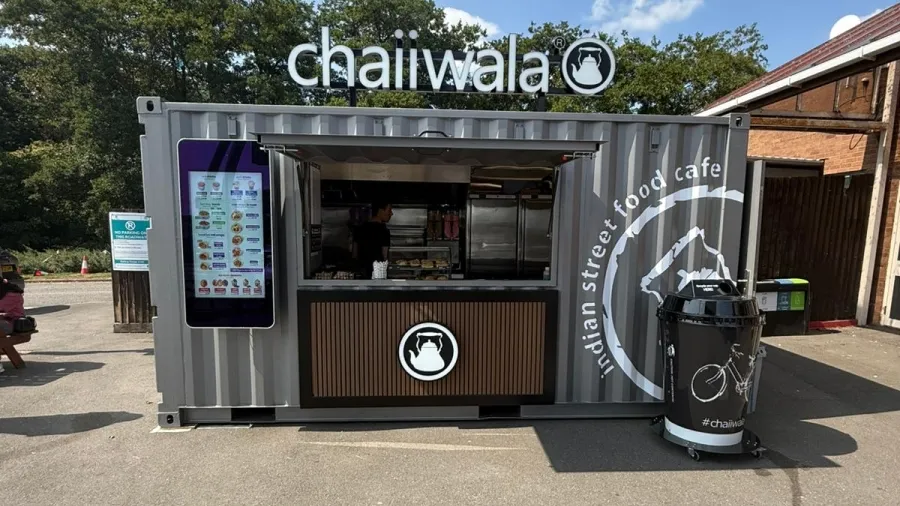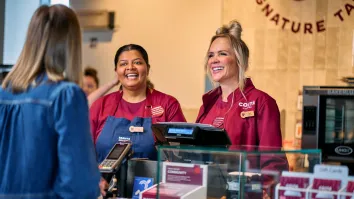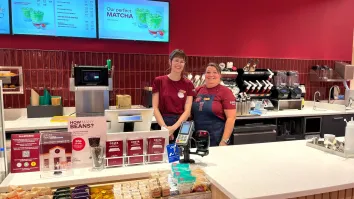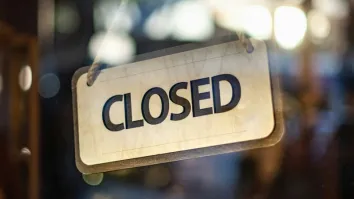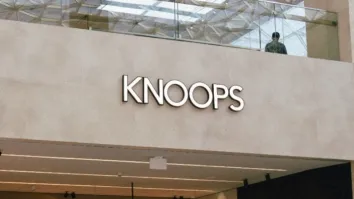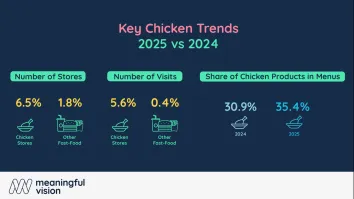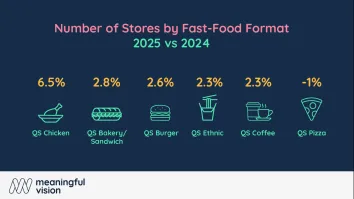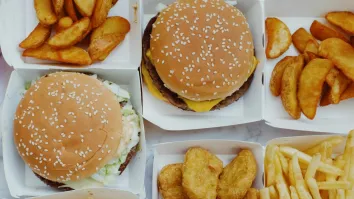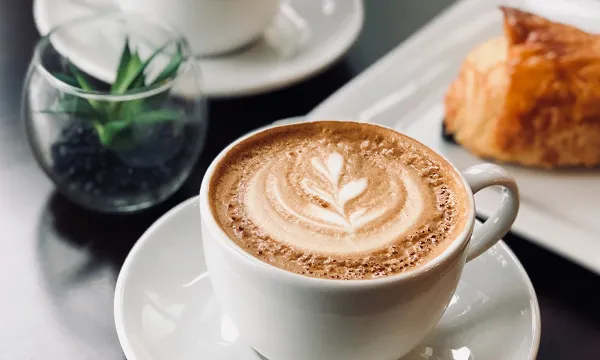
EXCLUSIVE: Snacking, coffee emerging as new delivery trends in London
Families are driving the trend with demand in the capital up 95% in 2020, NPD Group says.
QSRs may find opportunities in the snack and coffee categories as consumer seek out treats during lockdown.
Latest analysis from The NPD Group indicated a “significant” rise in families in London ordering snacks and coffee delivered to their home. Demand from families for snacking delivered by operators and delivery platforms like UberEats and Deliveroo increased 95% in London in 2020 compared to the year prior.
This, the insights agency said, is significantly ahead of the 11% increase in orders placed by families across the country as a whole.
London currently represents one quarter of the UK’s snacking via delivery market and was the only region to see a rise in snacking via delivery.
In 2020, the growth in weekend snacking deliveries in London was up 72% year-on-year, versus only 2% across Britain. Also popular with the 16-24 age group, these younger consumers are cited as the most likely to pay for a ready-made coffee to be delivered to their home, often as part of a snack order. Last year, 35 million home food deliveries included a ready-made coffee ordered either direct from foodservice operators or via delivery platforms, NPD said.
The average amount spent per person on snack delivery also increased by 20% nationally in 2020 vs. 2019 to reach £5.66. This figure is 20% less than overall spend per person on main meal delivery (£7.14). The number of items bought during each snacking occasion in London is now 18% higher than the national average.
Dominic Allport, insights director for foodservice at The NPD Group, believes that demand will rapidly spread to other cities and large towns where delivery companies offer “unlimited drops for a monthly subscription.”
“Delivery snacking occasions are being driven by five trends – the maturity of the dinner daypart, many more people working from home (who are saving money by not travelling to work and are eating in a less structured way), lockdown boredom, a high proportion of spend on deal (indicating that operators and delivery platforms are releasing lots of deals as a way to encourage uptake), and the increasing use of subscriptions for delivery purposes,” he told QSR Media.
For Allport, chains can also find an emerging opportunity to tap into premium snacking occasions.
“Premium ranges of snacks can tap into trends such as health, indulgence and quality, which can help boost consumer spending.”
Notably, the rise in snacking did not come at the expense of another daypart.
“According to NPD’s SnapMyEats data in the 3 months to Dec[ember] 20, only 5% of the growth in delivery snacks in London came from switching out of other dayparts. 73% was from Londoners increasing their delivery frequency. 22% was from new delivery buyers,” Allport revealed.
Whilst recognising coffee’s popularity during snacking occasions, Allport surmises that delivery demand for the beverage might prove to be “short-term” and
“It could well be that coffee delivery popularity might prove to be only short-term – say between now and the summer of 2021, maybe returning again during Winter 2021-22, but may not be sustained after the vaccination programme is complete and once commuting and dine-in return.”

